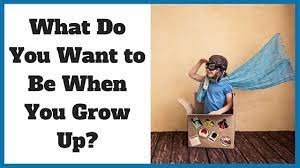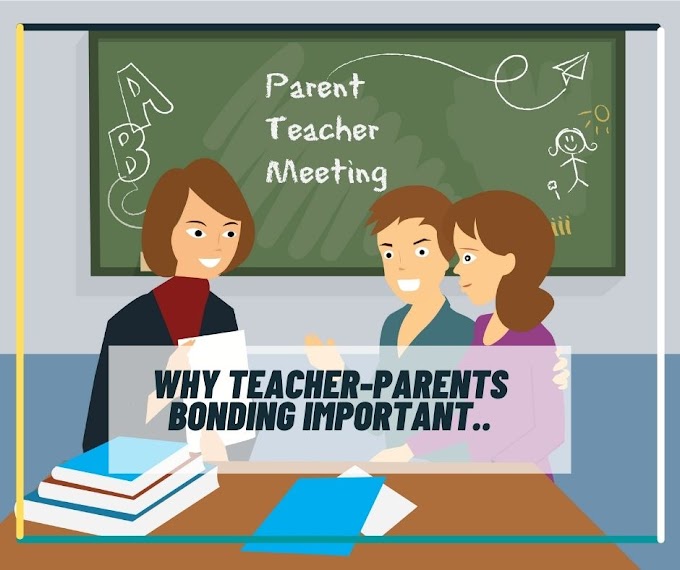A question that has been successfully tossed across generations to each learner age bracket possible – right from a kindergartener to an adolescent. Which question often charts out a roadmap to a choice of a job or career in one's life, not with the thought of contributing meaningfully to the society but purely to make a decision one's stream of education – Science to be a doctor or an engineer, Commerce to be an Accountant, etc. this is often where we suddenly narrow the entire world into a tunnel for a toddler. An enormous mistake!
By the time our youngest Generation Z or the iGeneration children get older in workspaces, most of today's career choices may render themselves obsolete. Many new careers will mushroom. What are we then preparing our learners for? What skills are we equipping them with? Can we still think the opening question has relevancy anymore?
Instead, imagine asking this generation of learners an issue – How would you wish to contribute to society?
Through one question, we sow the seed of a thoughtful inquisition. To seek out the solution to the question, learners must research what must be done to enhance society. Their research may span across subjects of Science, Politics, Economics, Technology, and lots more. The training doesn't stagnate with an accumulation of data, but it's only a start line. It's fuelled by research skills, critical thinking, problem-solving, collaboration, and creativity, to call a couple of.
Project-Based Learning
To prepare this post-millennial generation for future challenges, it's the necessity of the hour to deviate from content-based learning to relatively newer methods of teaching-learning like Project-based Learning (PBL). PBL is often best defined as pedagogics through which learners answer a posh question or solve a posh problem. This problem solving includes researching the question, synthesizing the knowledge, working with others, and presenting the work to the category.
How interesting it's to ascertain a category of 8-year olds learning the fundamentals of the judiciary through a task play of a courtroom trial! Imagine 6-year olds learning to differentiate between needs and needs while learning about the maths concept of cash integrated with the life skill of savings. How meaningful would a lesson be learned when 12-year-old learners lead the change by identifying reckless plastic usage as an environmental problem and initiating a school-wide plastic collection drive.
Studies comparing learning outcomes for learners taught via project-based learning versus traditional instruction show that it helps learners perform better than conventional learners in high-stakes tests, improves problem-solving and collaboration skills, and improves their attitudes towards learning.
Project Learning At Vidhyashram International School:
Besides the sooner mentioned skills, learners polish their skills of communication and presentation effectively via project-based learning. At Vidhyashram International School, one of the best school in Jodhpur, we've often seen this in practice during Math Fiesta and Innovator's Convention, where all the 21st-century skills are at work to embrace challenges and make solutions.
It is often easy to impress people using these pedagogical terminologies and implement PBL during school. Project-based learning is usually mistaken with learning that assigns projects. Teachers' teaching' content followed by a directed task as a private or a gaggle project isn't project-based learning. The image below will precisely highlight the difference within the easiest method.
In an endeavor to bring the most straightforward opportunities to our young learners from the subsequent school year, we'll be introducing Global Perspectives in Primary years – a newly taught skill-based subject in Cambridge. This is often an ideal vehicle for Project-based learning, utilizing multifaceted projects as a central organizing strategy for educating learners.
When engaged in Global perspectives projects, learners will typically be assigned a task or series of projects that need them to use diverse skills—such as researching, writing, interviewing, collaborating, or public speaking—to produce various work products, like written or multimedia presentations, video documentaries, art installations, or musical and theatrical performances, for instance.
The Scope of Project-Based Learning:
The project-based learning experiences are often designed to deal with real-world problems and issues, which needs learners to research and analyze their complexities, interconnections, and ambiguities (i.e., there could also be no "right" or "wrong" answers during a project-based-learning assignment).
When the boundaries of subjects merge seamlessly and we realize that knowledge of various subjects and various skills are needed together to seek out an answer to a drag, can we understand the truth meaning of learning? The training of skills through PBL comes closest to getting used in real-world situations and hence most ideal for organizing our Gen-Z learners for a world to return.
As adults, allow us to open their minds to a myriad of possibilities, opportunities to pursue, ignite their senses with inquisition… will enable them to question and successively will allow them to work out the answers by themselves, allow them to hypothesize, allow them to make mistakes and learn, allow them to reflect on their work, encourage them through their failures. allow us to get the young ones set for a world of tomorrow!
Also read - Benefit of learning coding in School







0 Comments